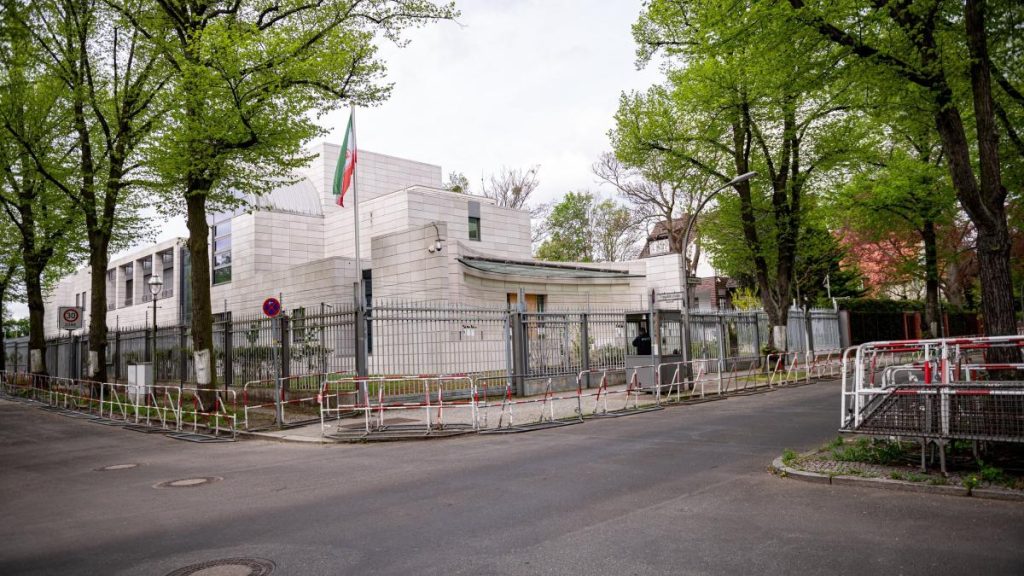Despite the ongoing tensions in the region, Germany continues to export military goods to Iran. Politicians are now calling for an economic embargo and a ban on an Iranian propaganda center in Hamburg. The German government approved dual-use exports to Iran in 2021, totaling 140 million euros, with a significant increase from the previous year. In 2022, the volume decreased but still amounted to 16.8 million euros. Dual-use goods include materials, aviation electronics, ship technology, and sensors. Politicians and experts are concerned about supplying such goods to countries like Iran and Russia, as they can pose a threat to peace.
Former Minister Julia Klöckner, the economic policy spokesperson for the Union faction, is calling for a halt to the export of dual-use goods to Iran. She also suggests freezing funds or sanctioning Iranian banks that finance terrorist organizations such as Hamas and Hezbollah. Transactions of Iranian banks in the EU have not been frozen, and new branches of Iranian banks have been allowed to operate in Germany since 2018. Some politicians, like Michael Roth from the SPD, believe that Germany’s approach to Iran needs to change, given the regime’s radicalization and increased danger in recent years. Roth advocates for a trade and economic embargo on Iran within the EU.
There are fears that the conflict in the Middle East could spill over into Europe, with experts warning of potential attacks by terrorist groups with ties to Iran. Iranian agents continue to target Israeli civilians and officials, as well as Jewish individuals and institutions abroad. The risk of attacks in Europe has increased, with Israeli embassies on high alert. Concerns have been raised about Iranian operations in Germany, particularly through the Islamic Center in Hamburg, which is believed to be used as a base by Iran and the Hezbollah terrorist group. The potential for attacks in Europe has raised concerns among security officials and politicians.
Green Party deputy leader Konstantin von Notz acknowledges the heightened risk of attacks in Europe due to developments in the Middle East. He emphasizes the need for vigilance, especially in protecting Jewish institutions. The long-debated ban on the Islamic Center in Hamburg is seen as overdue, with the Federal Office for the Protection of the Constitution providing extensive materials to support a potential ban. Despite police raids on the mosque in November 2023, a ban has not been implemented yet. The analysis of seized data and documents is ongoing, but given the current global situation, the process may be expedited.
In light of the concerns surrounding security and terrorism related to Iran, there are calls for stricter measures and actions to prevent potential threats in Europe. The role of Germany in supplying dual-use goods to Iran is under scrutiny, with demands for a reevaluation of export policies. The potential risks posed by Iranian operations in Europe, including the use of propaganda centers for nefarious activities, highlight the need for enhanced security measures and international cooperation to address the evolving threats in the region and beyond. The situation remains complex and requires a comprehensive approach to safeguard peace and stability.


